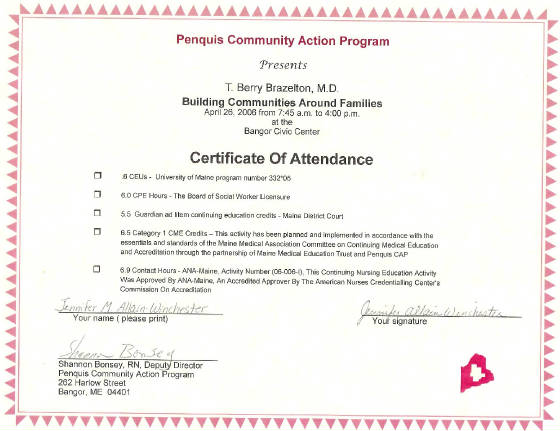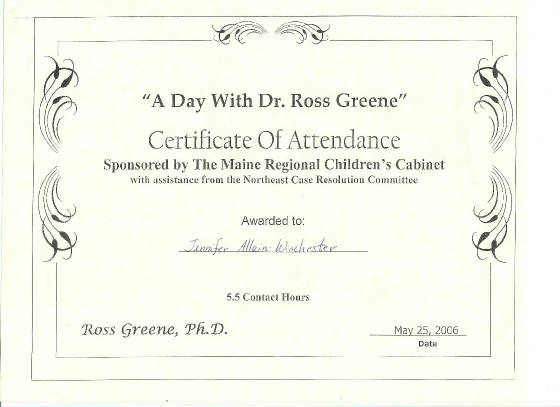|
Standard 10:
Professionalism
Demonstrates a strong professional ethic and a desire to contribute to the education profession.
Professional Learning Communities
As a matter of course, I have always sought ways and opportunities to better myself professionally
and personally. In former positions as well as in areas of personal interest, I have engaged in trainings and joined
groups and professional organizations that have afforded me opportunities to network with peers and to learn from them. Even
as a student-teacher, I have participated Caravel Middle School's "professional learning communities" or PLC's as they
are known, in which teachers of related subject areas gather weekly to discuss their respective goals. These PLC's
are a great way to review curricula, gather student data, and discuss ways to enhance student learning. I
also participated in the Bangor School System's "Teacher Academy" training days in which teachers participated in district-wide
information sessions then broke out into grade-level instructional groups to discuss goals, much like Caravel's PLC's.
These types of gatherings are a great opportunity for schools to align their goals and priorities to better coordinate instruction
for students.
Professional Development
In my former job as a social worker, I had the good fortune to be able to attend several
professional development training events that related directly to child development. Two seminars in
particular top the list of those that I feel have most dramatically impacted upon my own perceptions about children and
ultimately led to my decision to become a teacher; conferences with leading child advocates, T. Berry Brazelton, M.D.
and Ross Greene, Ph.D.
In April of 2006, I attended a
conference hosted by the Penquis Community Action Program entitled, "T. Berry Brazelton, M.D.: Building Communities Around
Families." Dr. Brazelton is a noted pediatrician, child advocate, national speaker and researcher of child development.
The focus of Dr. Brazelton's presentation was to encourage professionals who work with children to increase
the competence of parents and to help strengthen child-family relationships, particularly during early childhood. By
helping parents understand normal developmental stages and regressions, we can help them foster a better sense of how to parent
through those stages successfully and emerge with a well-balanced child.

In May of 2006, I attended an event
sponsored by the Maine Children's Cabinet called "A Day with Dr. Ross Greene." Dr. Ross Greene is a leading child
psychologist, researcher, author and hero to struggling children everywhere. His approach, called collaborative
problem solving, calls for a paradigm shift in the way adults and children interact and has enormous implications for
the field of education, especially for children whose behavior or cognitive needs create problems between the teacher
and the student.
Dr. Greene's approach requires the
adult to acknowledge the child's perspective (show empathy), explain her own perspective (define the problem), and then
invite the child to help solve the problem (invite collaborative problem-solving). In most adult-child relationships,
the child is left out of the decision-making process, increasing frustration that exacerbates the child's explosive or
uncooperative behavior. The entire premise of Dr. Greene's philosophy of behavior management is that when children are
given an opportunity to be part of a solution, they are naturally more inclined to buy-in to it and grow up to be better problem-solvers
themselves. By letting go of the old paradigm of adult authority and control we are able to form better, more productive relationships
with our students and be far more effective educators.

These are but two of many seminars and trainings in which I have participated.
I always take something away from professional development experiences and enjoy those opportunities to enhance my skills
and to network with other professionals from whom I learn so much. As a dedicated lifelong learner, I truly
believe that engagement in personal and professional development as well as community involvement makes us more informed,
better-rounded teachers. It also makes us better role models for our students!
Continuing Education
As an individual with a passion for lifelong learning, I have no intention
of resting on my own intellectual laurels. One of my long-term goals is to earn a Master's degree in school
counseling, which will involve taking several advanced courses in child development and counseling. I hope to begin
that graduate program as soon as Fall of 2009. In the meantime, I will continue to independently keep abreast of new
ideas and research in education by reading education-related journals and attending seminars as available.
|

